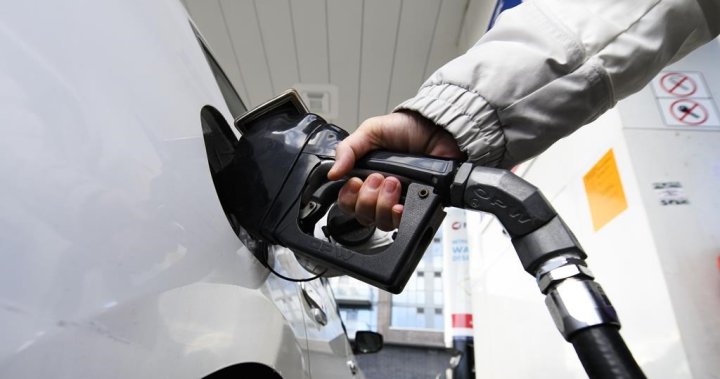GasBuddy, a price-monitoring company that crowdsources prices at the pump, predicts that Canadians are unlikely to see gas prices fall below one dollar per litre in the future. This is mainly due to factors such as the federal carbon price increase, geopolitical strife like Russia’s war on Ukraine, more expensive summer gas, increased demand during summer travel, and maintenance at refineries. Gas prices were up by an average of 13.8 cents in March compared to the previous month, and 11.2 cents higher than the average price in 2023.
Patrick De Haan, a petroleum industry analyst at GasBuddy, stated that with yearly increases in gas prices, it is becoming less likely that prices will drop below a dollar per litre. Toronto Metropolitan University global management professor Michael Manjuris also agreed with GasBuddy’s prediction, noting that producers adjust the amount of petroleum they put into the market to match demand and maximize profit. Canadians do receive a rebate from the carbon pricing increase, but higher gas prices also affect other sectors like the grocery industry, where prices may rise to cover additional costs.
The carbon price increase is intended to encourage Canadians to shift towards transportation that emits fewer carbon emissions. However, Manjuris pointed out that for this strategy to work, affordable alternatives need to be available. Electric vehicles, for example, are still expensive to purchase and rely on charging stations, which are not widely available across the country. While Conservative Leader Pierre Poilievre has promised to “axe the tax” and cut the carbon price, Manjuris highlighted the importance of having a concrete plan in place to replace it and help Canada in its efforts to combat climate change.
Overall, GasBuddy’s forecast suggests that gas prices are likely to remain above one dollar per litre in the future due to various factors influencing the market. The federal carbon price increase, geopolitical conflicts, higher demand during summer travel, and maintenance at refineries all contribute to higher gas prices. Manjuris emphasized the importance of providing affordable alternatives to reduce carbon emissions, especially in the transportation sector. It remains to be seen how Canada will address these challenges in the coming years and whether there will be significant changes in gas pricing strategies.


